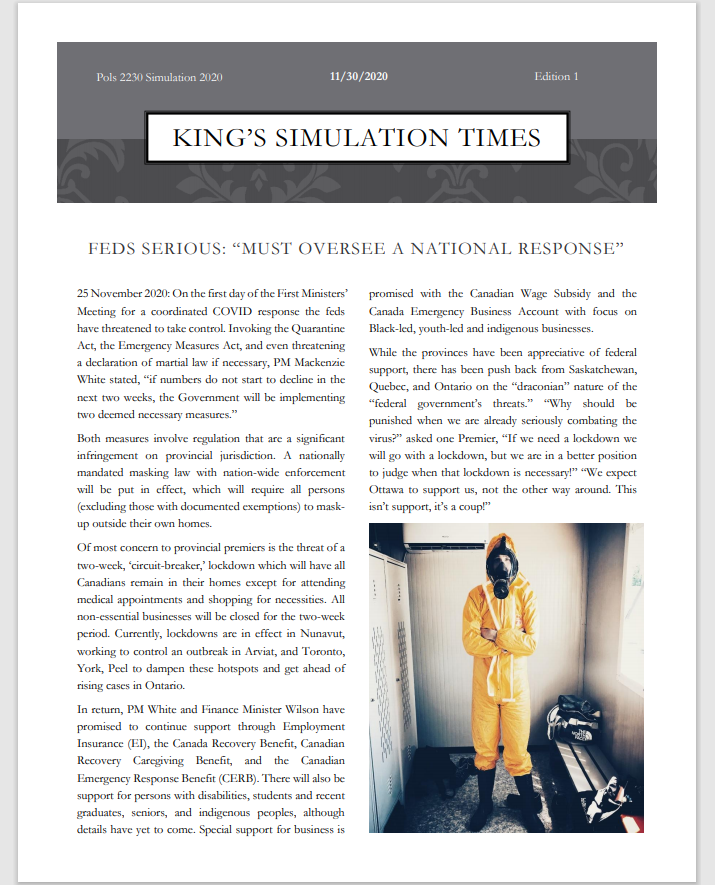Each end of term when I teach Introduction to Canadian Government and Politics (Pols 2230E) the class performs a simulation. This term it is a First Ministers' Meeting to establish a coordinated plan to combat COVID-19. Keeping it topical helps them engage and some "simulated" news coverage enhances that. Here is the first edition of the Simulation Times, reporting on the first day of meetings and some of the ensuing negotiations.
Like, many other Canadians, the students in the class have to figure out how federalism works in terms of areas of separate and shared jurisdiction. It is also interesting how often the first response of the group representing the Federal Government is to go with a "draconian" desire for central control, reflecting the real continuing desire of Ottawa to get some sort of control over Confederation. It is an interesting learning moment for them, because without the full hindsight and historical context they don't see using the Emergencies Act as running a chance of creating intergovernmental-conflict that could tear the country apart. However, the unsurprising push back from other groups, quickly brings home the fact that intergovernmental affairs and the federal-provincial balance is a delicate thing and no one really want to open up constitutional negotiations again.
Further, assigning students to groups with which they have little experience, like the northern territories, is eye-opening. Their assumptions that the rest of Canada is the same or very similar to Southwestern Ontario are quickly smashed, and it brings home the nature of regional inequalities in this country.
Plus, it's lots of fun. At the end of next term, we take on the national parliament.


Comments
Post a Comment